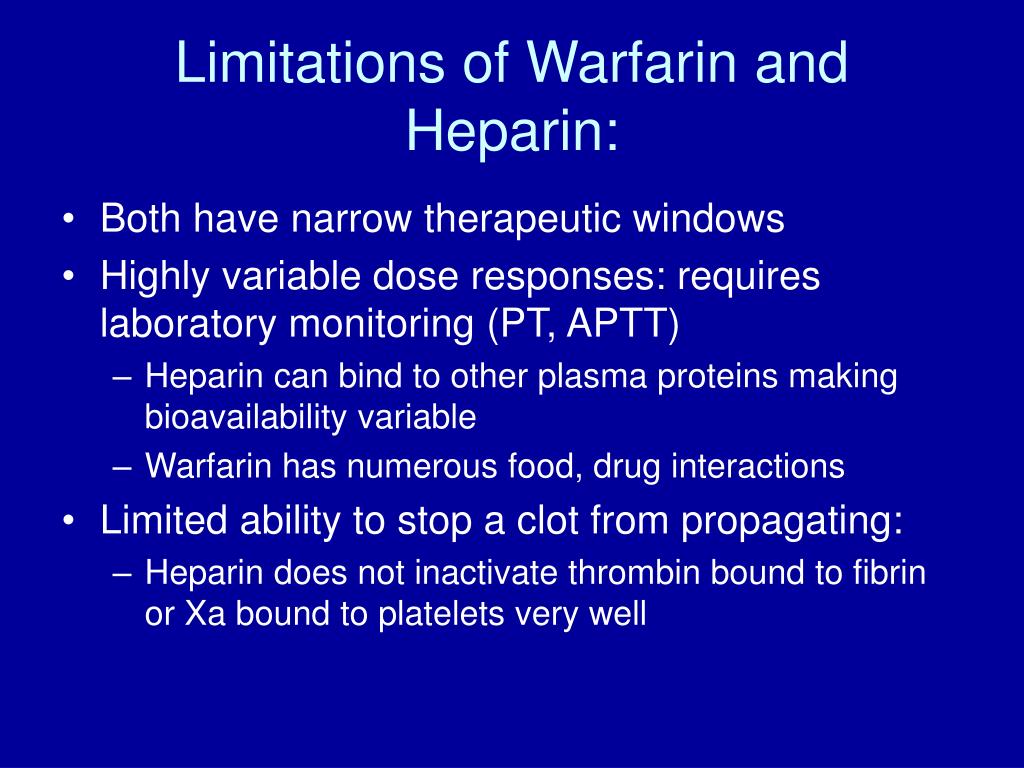

Some of the more widely known anticoagulants include: Most come in pill form, but some are given as a shot or as an IV through one of your veins. These keep your blood from clotting or turning into solid clumps of cells that stick together. But it's important to learn about both before you start taking them. The lifesaving benefits of these drugs often outweigh the potential dangers. But they also come with risks: For example, they’ll cause you to bleed more than usual if you cut yourself. These drugs help protect against heart attacks and strokes.

They’re used to treat some types of heart disease and heart defects, along with other conditions that could raise your risk of forming dangerous clots. They keep blood clots from forming or getting bigger. Although antidotes against anticoagulant treatment are widely available, our analysis shows that in only a very small number of patients a direct, or slow-acting antidote to reverse the anticoagulant effect was used.Blood thinners are medicines that help blood flow smoothly through your veins and arteries. Vitamin K was more frequently given in case of a higher international normalized ratio value. Antidotes were statistically significantly more frequently given in Canada as compared to other participating countries. The use of antidotes was comparable for initial and long-term treatment. Vitamin K was given to 23 (1.2%) patients, one (0.05%) patient received protamin sulfate and seven (0.4%) patients received fresh frozen plasma. Of the patients with at least one major hemorrhage, 19 (41.3%) received an antidote. Some form of antidote was given to 26 (14.4%) patients with a hemorrhage. We investigated 1877 patients treated for venous thromboembolism included in three large clinical trials, of which 181 (9.6%) had a total of 225 adjudicated bleeding episodes 46 hemorrhages being designated as major. Interestingly, it is unknown how often the use of an antidote is necessary in clinical practice. Several new anticoagulants have been developed that are likely to have some risk of bleeding complications, for which no specific antidotes are available.

When a bleeding complication occurs during therapy with heparin or vitamin K antagonists, there is an option to give a specific antidote.


 0 kommentar(er)
0 kommentar(er)
